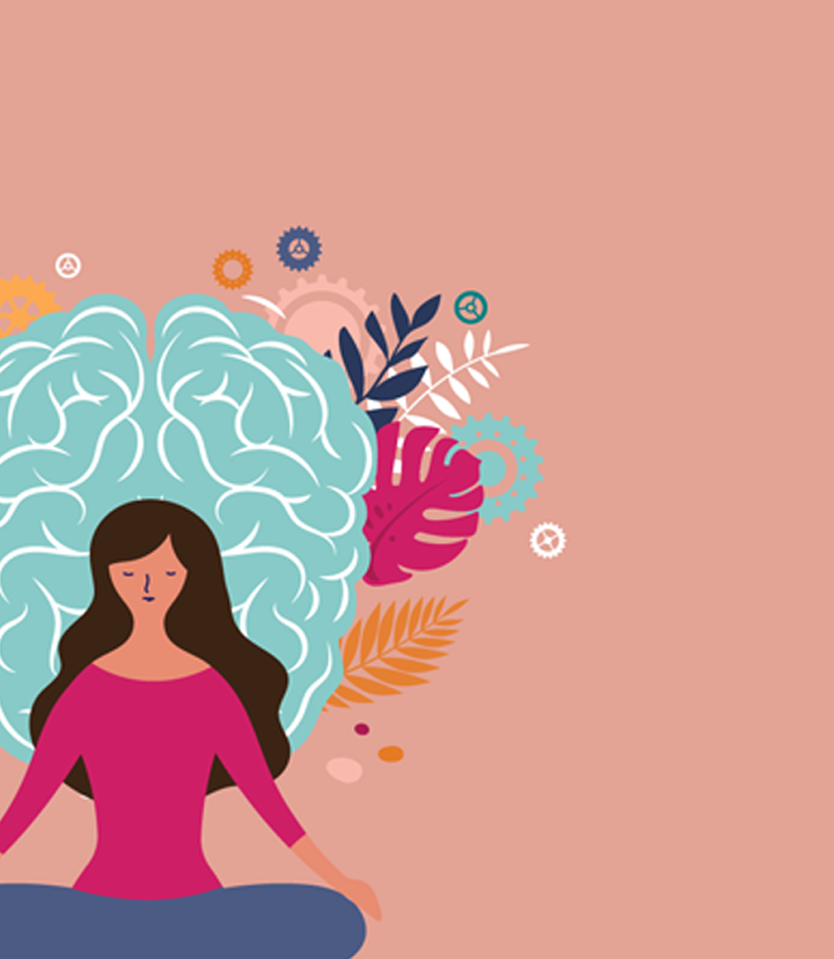
Mindfulness is a form of meditation that helps you concentrate on being acutely aware of what you’re sensing and feeling in the present moment, without judgement or interpretation. It may be thought of as a relaxation technique that uses breathing exercises, guided imagery, and other processes to assist the body and mind relax and reduce stress. There has been a rise in interest in mindfulness as a psychological construct and as a type of clinical intervention during the last several decades. Consequently, research has concluded that mindfulness has a variety of positive psychological consequences, including enhanced behavioural control, reduced psychological symptoms, and lower emotional reactivity. Some other benefits are listed below,
- Enhances Working Memory and Cognition – Working memory has proven to improve with mindfulness meditation. Furthermore, mindfulness training has shown to have increased visuospatial processing, working memory, and executive functioning considerably[3]. And while research on this is preliminary, a comprehensive assessment shows that mindfulness may help prevent cognitive decline through its effects on memory, attention, processing, and executive function.
- Improves Focus – Practising mindfulness enables a person to expand their ability to concentrate. It has proven to enhance focus and alter attention-related neural activity. When compared to those who do not meditate, data suggests that people who meditate have improved attentional functioning and cognitive flexibility and higher performance on all measures of attentiveness.
- Reduces Stress – Mindfulness can help you naturally de-stress by giving your mind a focus while also concentrating your breathing (and may have a beneficial effect on your physical health by lowering blood pressure). Moreover, present-moment awareness, a significant element of mindfulness, promotes stress resilience and effective coping, according to research published in the Journal of Research in Personality.
- Decreases Anxiety and Emotional Reactivity – Mindfulness meditation can improve emotional regulation and reactivity, additionally permitting the mitigation of depressive symptoms and social anxiety. It also alters people’s ability to use emotional regulation methods to allow them to experience emotions selectively. Compared to the control group, research found that participants who received mindfulness-based stress reduction had considerably reduced anxiety, depression, and somatic distress.
- Strengthens Relationships – Mindfulness practitioners have shown to possess a higher capacity to articulate themselves and their needs. Moreover, mindfulness can provide new avenues for expression and a higher tolerance for emotional distress, allowing more space for healthy and balanced relationships. It is also positively linked with the ability to express oneself in various social circumstances.
